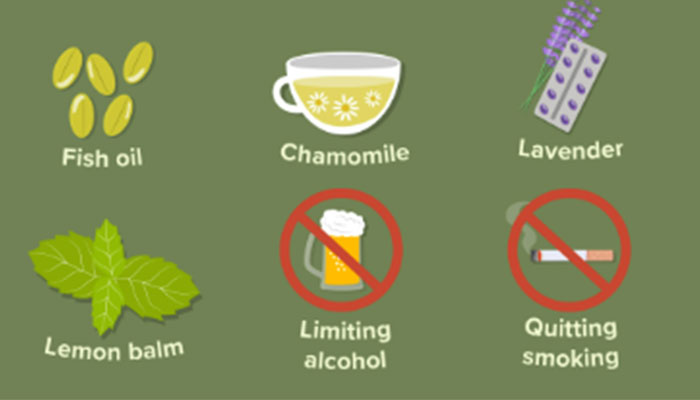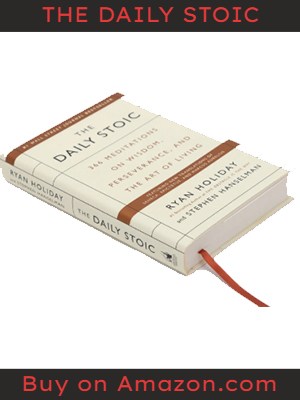
Millions of people throughout the world suffer from anxiety disorders, which are among the most prevalent mental health issues. Panic disorder, social anxiety disorder, Generalized Anxiety Disorder (GAD), and particular phobias are just a few of the ways that anxiety can show themselves.
Fortunately, anxiety can be effectively treated with a variety of effective therapies. This guide examines the most effective evidence-based strategies for overcoming anxiety including alternative therapies, medicine, therapy, and lifestyle modifications.
1. Cognitive Behavioral Therapy (CBT) as a Foundational Approach to Psychotherapy
Most people agree that cognitive behavioral therapy is the best way to manage anxiety disorders. The goal of this time-limited structured therapy is to recognize and alter harmful thought patterns and behaviors that support anxiety.
- How it Operates?
Therapists assist clients in identifying unreasonable anxieties or pessimistic beliefs and substituting them with more practical and positive ideas. Exposure therapy is one behavioral strategy that helps people confront their concerns in a controlled way.
- Effectiveness
Studies reveal that Cognitive Behavioral Therapy (CBT) considerably lessens anxiety symptoms and offers long-term advantages.
Therapy by Exposure
Exposure treatment, a form of cognitive behavioral therapy, is especially useful for treating Obsessive-Compulsive Disorder (OCD), social anxiety, and phobias. It entails exposing the person gradually to stimuli or circumstances that cause anxiety in order to desensitize them.
As an illustration, a person who is afraid of flying might begin by viewing images of aircraft, then go to an airport, and finally take a quick flight.
Acceptance and Commitment Therapy (ACT)
The goal of acceptance and commitment therapy or ACT, is to accept worried thoughts instead of resisting them. ACT supports people in leading satisfying lives in spite of their anxiety by emphasizing mindfulness and value-driven behavior.
2. Drugs – Handling Symptoms
Medication can be a useful tool for treating symptoms, especially in moderate to severe cases while therapy focuses on the underlying reasons of anxiety.
SSRIs or Selective Serotonin Reuptake Inhibitors
For anxiety disorders, SSRIs like fluoxetine (Prozac) and sertraline (Zoloft) are frequently recommended. They function by raising the brain’s serotonin levels which help in mood regulation.
- Benefits
SSRIs have fewer adverse effects than earlier antidepressants and are useful for long-term treatment.
- Drawbacks
Some people have adverse effects including nausea or insomnia and it could take a few weeks to see changes.
Benzodiazepines
Acute anxiety or panic attacks can be temporarily relieved by these fast-acting drugs such as lorazepam (Ativan) and alprazolam (Xanax).
- Caution
Long-term use of benzodiazepines is typically not advised due to the possibility of habit formation.
Additional Drugs
- SNRIs
Venlafaxine (Effexor) and other serotonin-norepinephrine reuptake inhibitors are also useful.
- Beta-Blockers
These help in the treatment of physical symptoms such as a fast heartbeat, particularly in cases of performance anxiety.
- Buspirone
An anti-anxiety drug that is non-addictive and appropriate for GAD.
3. Modifications to Lifestyle – Developing Resilience
Reducing anxiety symptoms can be greatly assisted by implementing good lifestyle choices.
Frequent Physical Activity
Exercise lowers the stress hormone cortisol and increases endorphins. Running, swimming, and cycling are examples of aerobic exercises that work especially well.
- Frequency
Try to engage in moderate activity for at least half an hour most days of the week.
- Benefits
Benefits include less stress, improved sleep, and an uplifted attitude.
A Well-Balanced Diet
Mental health is impacted by nutrition. Brain health is supported by a diet high in fruits, vegetables, lean meats, and complete foods.
- Foods to Include
Foods high in magnesium (almonds, spinach), probiotics (yogurt, kefir), and omega-3 fatty acids (found in fish).
- Foods Not to Eat
Sugar, alcohol, and caffeine should be avoided as these might make anxiety worse.
Hygiene of Sleep
Getting enough sleep is crucial for controlling emotions. A vicious cycle is created when anxiety interferes with sleep. Avoid using electronics just before bed, establish a relaxing evening ritual, and stick to a regular sleep schedule.
Techniques for Stress Management
Anxiety levels can be decreased by learning stress management techniques. As an illustration, consider time management, realistic goal-setting, and assertiveness exercises.
4. Techniques for Mindfulness and Relaxation
Techniques for mindfulness and relaxation are effective means of promoting mental and physical calmness.
Meditation With Mindfulness
This technique entails concentrating on the here and now without passing judgment. Frequent meditation can reorganize the brain to handle stress in a more composed manner.
- How to Get Started?
Start by using applications like Calm or Headspace for 5 to 10 minutes per day.
Exercises for Breathing
The parasympathetic nervous system which is triggered by deep breathing, inhibits the body’s stress reaction.
- Methods
Try the 4-7-8 technique (inhale for 4 seconds, hold for 7, and exhale for 8) or diaphragmatic breathing.
- PMR (Progressive Muscle Relaxation)
By methodically tensing and relaxing each muscle area, PMR helps ease the physical tension brought on by anxiety.
5. Complementary and Alternative Medicines
Tai Chi and Yoga
These techniques are great for reducing anxiety because they incorporate mindfulness, breathing techniques, and physical movement.
- Advantages
Decreased cortisol levels, increased attention, and relaxation.
Use of Acupuncture
By activating particular body spots, this traditional Chinese medicine method might help reduce anxiety.
- Evidence
Although additional study is required, studies indicate that it might lessen symptoms.
Herbal Treatments
- Chamomile
Renowned for its ability to soothe.
- Lavender
Used to encourage relaxation in drinks and aromatherapy.
- Caution
Before using supplements, speak with your doctor because they may interfere with prescription drugs.
6. Support Networks – The Function of Connections
Groups for Peer Support
Making connections with those who suffer from anxiety might ease their discomfort and lessen their sense of loneliness.
- Formats
Online forums such as the Anxiety and Depression Association of America (ADAA) or in-person gatherings.
Friends and Family
An important factor in managing anxiety is having a network of people who are supportive. Inform your loved ones about your situation and promote candid conversation.
7. New Therapies
Therapy With Virtual Reality
This creative method allows people to practice coping mechanisms in a secure setting by stimulating anxiety-inducing situations using virtual reality technology.
Neurofeedback
By tracking brain activity and teaching people how to control it, neurofeedback might help people feel less anxious.
Ketamine Treatment
Treatment-resistant depression and anxiety may benefit from low doses of ketamine given under a doctor’s supervision.
The process of overcoming anxiety is complex and frequently entails a mix of individualized therapy. While medicine can offer crucial symptom alleviation, psychotherapy – especially cognitive behavioral therapy, remains a fundamental component of treatment. Alternate therapies, mindfulness exercises, and lifestyle modifications can contribute to improved wellbeing and resilience.
Crucially, establishing a solid support system and obtaining expert assistance are essential phases in the healing process. With the correct strategy, people can live happy and powerful lives in addition to managing their anxiety.

Leave a Reply